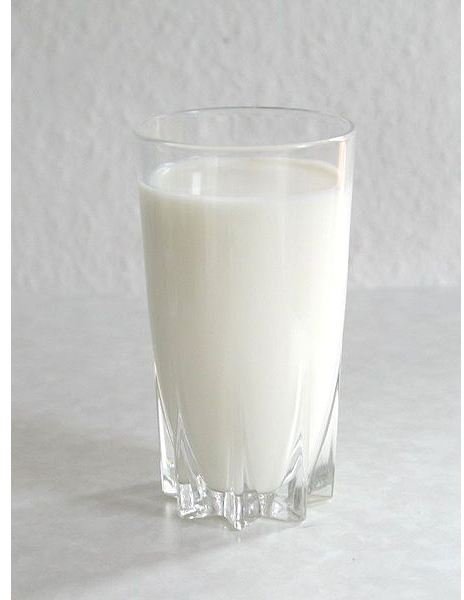Milk Calcium Content: What do You Know About the Calcium in Milk?
Calcium is one of the most abundant minerals present in the human body, with 99 percent stored in the bones and the teeth. Milk and dairy products are the best sources of calcium. But which milk is the best? Let’s have a look at the calcium content of milk and its products and see which the best is for you and your children.
Things You Should Know About the Milk Calcium Content
Milk is available in a variety of forms depending on the fat content. Whole milk has 4 percent fat and is the recommended form for 1 and 2-year-old children. For children and adults above the age of 2, the fat content present in whole milk is often a matter of concern. This is why low-fat or skim milk (2 percent or 1 percent) is the recommended form.

 Removing fat does not reduce the amount of calcium in milk. When the fat portion of whole milk is replaced with an equal part of skim milk, the amount of this mineral actually increases. You actually get more calcium from non-fat or skim milk than from whole milk.
Removing fat does not reduce the amount of calcium in milk. When the fat portion of whole milk is replaced with an equal part of skim milk, the amount of this mineral actually increases. You actually get more calcium from non-fat or skim milk than from whole milk.
Dairy products, such as yogurt, cheese and buttermilk, are also available in the low-fat and non-fat variety, and are excellent sources of calcium.
The recommended form is the non-fat or low-fat variety of milk. Of course, there may be exceptions to this rule depending on the health condition and requirements of different individuals.
So, now let’s have a look at the calcium content of milk and other dairy products.
Cow’s Milk
Most of the dairy products sold in the United States are made of cow’s milk. Besides being a good source of calcium, cow’s milk also provides vitamins D and K, iodine, potassium, vitamin A, riboflavin and vitamin B12. It also contains linoleic acid, which has been found to kill cancer cells in the human body.
A cup of 2 percent cow’s milk contains 296.7 mg of calcium which accounts for about 29.7 percent daily value of the individual’s required intake of this mineral.
Goat’s Milk
Although goat’s milk is not very popular in the United States, it is the preferred choice in many parts of the world because of its sweet and sometimes salty taste. For individuals, who have a sensitivity to cow’s milk, goat’s milk can be an ideal alternative, as there are specific proteins that are present in large quantities in cow’s milk but are absent in goat’s milk.

A cup of goat’s milk provides you with 325.74 mg of calcium and 32.6 percent daily value of calcium. Goat’s milk is also a good source of amino acid tryptophan, protein, phosphorus, vitamin B12 and potassium.
Other Dairy Products
Milk is not the only dairy product that is an excellent source of calcium. One cup of buttermilk contains 300 mg calcium whereas you can get 65 mg of this mineral from half a cup of cottage cheese. One cup of yogurt offers 450 mg of calcium.
An alternative for people who are lactose intolerant and cannot handle cow’s milk is soy milk. Many people are also switching to soy milk because it is believed to have more proteins and more fibers than cow’s milk. Keep in mind that soy milk does not contain the calcium of other types of milk. Calcium-fortified soy milk, however, can provide you with calcium in the range of 200 to 400 mg.
Keep in mind that the calcium content of milk is what makes it one of the most nutritious foods. The form that you choose will entirely depend on your own requirements and personal health. However, it can not be disputed that calcium in milk is what makes it one of the must haves for each and every individual of the family.
References
Medline Plus: Calcium in the Diet
University of California San Francisco: Calcium Content of Foods
The World’s Healthiest Foods: Milk, Goat
The World’s Healthiest Foods: Milk, 2%, Cow’s
Image Credit:
Wikimedia Commons: Milk glass.jpg
Wikimedia Commons: Dairy Crest Semi Skimmed Milk Bottle.jpg
